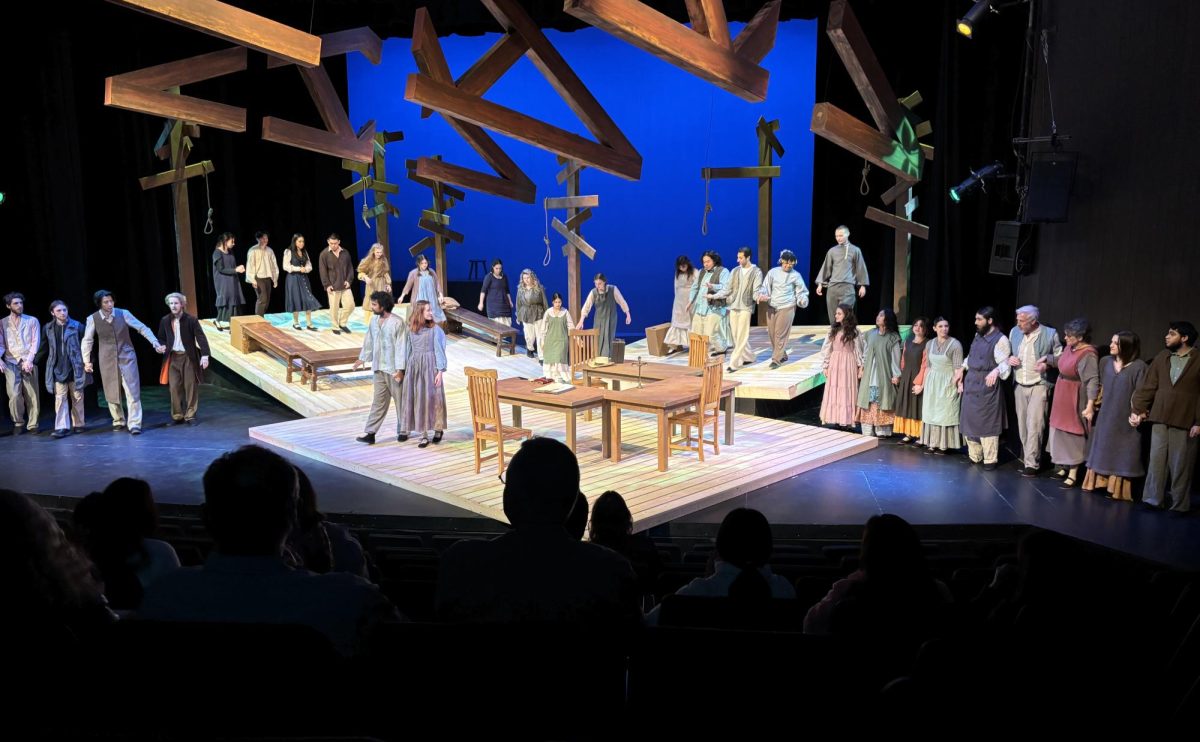“This is the most important election in modern history” is a phrase voters hear every election season, each one seemingly more important than the last. And each time, the same observation is also made: young people do not care about politics.
But that doesn’t appear to be the case this year. Huge numbers of young people are registering to vote in the Nov. 5 presidential election between former President Donald Trump and Vice President Kamala Harris.
For generations, the 18-24 age range has been criticized for its lack of participation in elections, where they hold significant voter power through their population but often do not sway the election either way.
However, in 2020, young voters turned out in record numbers and were crucial in pushing Joe Biden over the top and securing this victory. Could the 2024 general election be the next election in which young voters make the difference?
Sophia Galindo, a 19-year-old psychology major at Diablo Valley College, said she is ready to change the narrative about young voters this fall.
“I’m actually very excited to vote,” said Galindo. “Voting is more than just a privilege. It’s the right to stand for what you believe in.”
In a Sep. 17 Axios poll, young voters favored Harris with 55 percent saying they would vote for her while Trump trails with 24 percent of the youth vote. In the poll, 11 percent opted for a third-party candidate and 10 percent remained undecided.
The generation gap between young voters and the aging Congress could also bring out the youth vote.
According to FiscalNote, the average age of a House representative is 58, and the average age of a senator is 65. Although Millennials and Gen Z now make up nearly half of the eligible voter population, it’s clear they aren’t yet fairly represented in Congress.
In previous decades, the 18-24 age always had the lowest election turnout rates. But in a study by Tufts University, the 2022 midterm election saw 18- to 24-year-olds show up in larger numbers than Millenials, Gen X and Baby Boomers showed up when they had their first chance at voting in a midterm.
As a result, the surge in young voters completely swayed the 2022 election. Polls and political pundits across the country had predicted a “red wave” to sweep nationwide, in the typical transition of power from the party of the sitting president to that of the opponent.
But it didn’t happen. Democrats lost their government trifecta that year when the Republicans gained a slim majority in the House. Still, they expanded their control of the Senate by one seat and flipped two gubernatorial races.
Upending the traditional narrative, young people had a visible outcome in the election. Now the question is whether they can enlarge that impact.
This fall, in California in particular, many young voters are realizing it’s not just the president who is on the ballot. Important measures, propositions, and House and Senate races, both at the state and federal levels, will be voted on as well.
“The more someone is aware, the more they realize the effect of what’s happening on the down-ballot,” Suzy Pak, a trustee of the Lafayette School District Governing Board, told The Inquirer.
“It’s generally the stuff that’s closer to the bottom of the ballot that affects you the most because that’s what’s happening right around you—where you live, where you work, where you go to school.”
But not all young people are as excited—or even seem to care—about voting in November. In an interview with The Inquirer, 19-year-old DVC sophomore Hudson Pergamit expressed a feeling many young people share, which often dissuades them from voting: disillusionment.
“I don’t think politicians really care and/or cater to young people,” said Pergamit, a communications major. “The main reason is due to the older generations having more say on what happens in the country.”
Pergamit’s comments reflect a bigger problem with the political system, where younger voters generally feel as though their voices aren’t heard on issues important to them, from gun violence to abortion to climate change.
This fall, DVC students can cast their ballots on the Pleasant Hill campus, where there is a voter registration kiosk computer available in the library and at the computer lab in the Student Union Building.
As voters prepare to head to the polls in November, Gen Zers are eligible to vote, but the question is: will they show up? As many observers predict, the presence—or absence—of young voters could truly make this “the most important election in modern history.”








































































Mary L • Sep 19, 2024 at 8:38 pm
Yes! I love voting!